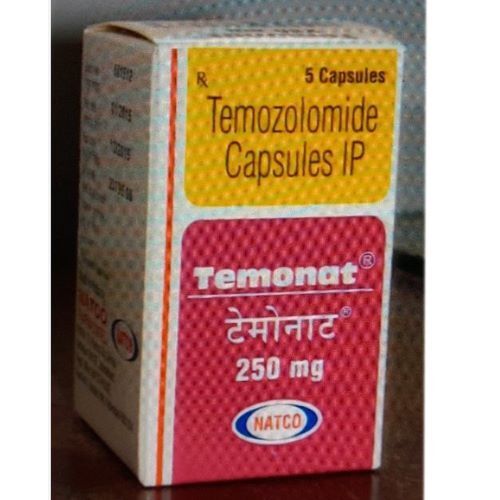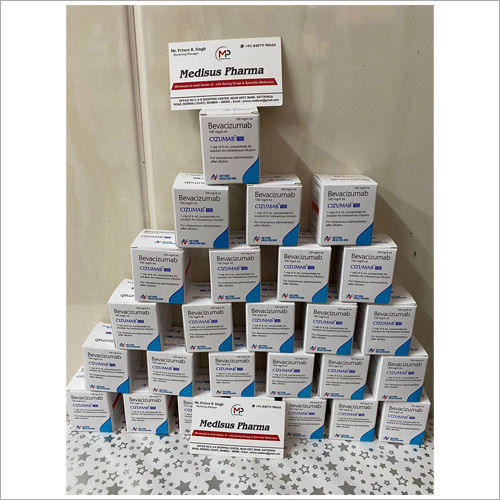Amphotericin B Emulsion Injection
Product Details:
- Salt Composition Amphotericin B 50 mg
- Dosage Form Emulsion Injection
- Indication Systemic Fungal Infections, Leishmaniasis
- Feature Ready-to-use emulsion, reduced nephrotoxicity
- Ingredients Amphotericin B, Lipid Emulsion Base
- Application Hospital, Clinical Use
- Ph Level pH 5.0 7.0
- Click to View more
Amphotericin B Emulsion Injection Price And Quantity
- 4500 INR/Vial
- 5 Vial
- Do not mix with saline or other solutions
- Dispose of unused portions safely as per medical guidelines
- WHO-GMP, Indian FDA approved
- Monitor for infusion-related reactions; should only be administered by medical professionals
- 50 mg/10 ml vial
- Prescription Required
- Lipid-based emulsion provides better tolerability and safety profile compared to conventional amphotericin B
- Indian pharmaceutical manufacturer
- Branded/Generic options available
- Single-use 10 ml vial with package insert
- Intravenous infusion only
Amphotericin B Emulsion Injection Product Specifications
- Ready-to-use emulsion, reduced nephrotoxicity
- Emulsion Injection
- Yellow to orange opaque emulsion
- Systemic Fungal Infections, Leishmaniasis
- Hospital, Clinical Use
- Amphotericin B, Lipid Emulsion Base
- Store below 25C, do not freeze, protect from light
- Odorless
- pH 5.0 7.0
- 24 months
- Amphotericin B 50 mg
- Do not mix with saline or other solutions
- Dispose of unused portions safely as per medical guidelines
- WHO-GMP, Indian FDA approved
- Monitor for infusion-related reactions; should only be administered by medical professionals
- 50 mg/10 ml vial
- Prescription Required
- Lipid-based emulsion provides better tolerability and safety profile compared to conventional amphotericin B
- Indian pharmaceutical manufacturer
- Branded/Generic options available
- Single-use 10 ml vial with package insert
- Intravenous infusion only
Amphotericin B Emulsion Injection Trade Information
- 1000 Vial Per Week
- 4 Days
- Asia, Australia, Central America, North America, South America, Eastern Europe, Western Europe, Middle East, Africa
- All India, South India, Central India, West India, North India, East India, Gujarat, Karnataka, Kerala, Lakshadweep, Mizoram, Meghalaya, Manipur, Andhra Pradesh, Bihar, Chandigarh, Daman and Diu, Goa, Jharkhand, Odisha, Punjab, Assam, Delhi, Dadra and Nagar Haveli, Andaman and Nicobar Islands, Arunachal Pradesh, Chhattisgarh, Haryana, Himachal Pradesh, Jammu and Kashmir, Madhya Pradesh, Maharashtra, Nagaland, Rajasthan, Sikkim, Tamil Nadu, Telangana, Tripura, Pondicherry, Uttar Pradesh, Uttarakhand, West Bengal
Product Description
MFIGHT EM Amphotericin B Injection is a highly effective antifungal medication used to treat a variety of fungal infections. It works by binding to the fungal cell membrane, causing it to become leaky and ultimately leading to the death of the fungus.
-
What is Amphotericin B Emulsion Injection used for?Amphotericin B Emulsion Injection is an antifungal medication used to treat serious fungal infections, including those caused by Candida species and Aspergillus species, in patients who are unable to tolerate or respond to other antifungal medications.
-
How does Amphotericin B Emulsion Injection work?Amphotericin B works by binding to a component of fungal cell membranes, disrupting their structure and function. This action leads to the death of the fungal cells, helping to eliminate the infection.
-
How is Amphotericin B Emulsion Injection administered?Amphotericin B Emulsion Injection is typically administered intravenously (IV) by a healthcare professional in a hospital or clinic setting. The dosage and duration of treatment will vary depending on the type and severity of the fungal infection being treated.
-
What are the common side effects of Amphotericin B Emulsion Injection?Common side effects of Amphotericin B Emulsion Injection may include fever, chills, headache, nausea, vomiting, diarrhea, muscle or joint pain, and changes in kidney function. These side effects are usually temporary and can often be managed with supportive care.
-
Are there any precautions or considerations before using Amphotericin B Emulsion Injection?Before using Amphotericin B Emulsion Injection, inform your healthcare provider about any medical conditions you have, especially kidney disease or electrolyte imbalances. Additionally, inform them about any medications you are taking, as certain drugs may interact with Amphotericin B.
-
What should I do if I miss a dose of Amphotericin B Emulsion Injection?If you miss a dose of Amphotericin B Emulsion Injection, contact your healthcare provider as soon as possible to reschedule your next dose. Do not double the dose to make up for a missed one.
-
How long will I need to use Amphotericin B Emulsion Injection?The duration of treatment with Amphotericin B Emulsion Injection will depend on the type and severity of the fungal infection being treated, as well as your individual response to the medication. Your healthcare provider will determine the appropriate length of treatment for you.
Advanced Lipid-Based Safety
By using a lipid emulsion, this Amphotericin B injection provides a significantly improved safety profile with minimized risk of kidney toxicity. This makes it particularly advantageous for patients who may not tolerate traditional Amphotericin B formulations well. Enhanced tolerability allows for effective treatment of severe infections with reduced infusion-related reactions.
Strict Handling and Administration
Amphotericin B Emulsion Injection should only be administered intravenously by trained medical professionals in hospital or clinical environments. Due to potential infusion-related adverse effects, close monitoring during infusion is essential. It is important to follow guidelines for preparation, administration, and disposal to ensure safety for both patients and healthcare workers.
Product Approvals and Assurance
This formulation has received regulatory clearances from WHO-GMP and the Indian FDA, ensuring compliance with rigorous quality and safety standards. The product includes clear instructions for storage, use, and disposal within its packaging, making it a reliable choice for institutional healthcare settings.
FAQ's of Amphotericin B Emulsion Injection:
Q: How should Amphotericin B Emulsion Injection be administered?
A: This injection is intended for intravenous infusion only and must be administered by qualified healthcare professionals in hospital or clinical settings to ensure appropriate monitoring and safety.Q: What is the benefit of the lipid-based emulsion formulation?
A: The lipid-based emulsion offers enhanced tolerability and a reduced risk of nephrotoxicity compared to conventional Amphotericin B, making it safer for patients who require systemic antifungal therapy.Q: When is Amphotericin B Emulsion Injection typically indicated?
A: It is used for the treatment of systemic fungal infections and leishmaniasis, particularly in cases where other therapies may not be appropriate or are less effective.Q: Where should this product be stored before use?
A: Store the vials below 25C, protected from light, and do not freeze. Proper storage helps maintain the integrity and efficacy of the medication.Q: What precautions should be taken during administration?
A: Monitor for infusion-related reactions, avoid mixing with saline or other solutions, and ensure administration is performed by medical professionals using aseptic techniques.Q: What is the correct process for disposing of unused medication?
A: Any unused portion should be disposed of safely following medical waste guidelines provided in the packaging insert to prevent environmental contamination or accidental exposure.Q: What is the physical appearance and sensory quality of this product?
A: The emulsion is yellow to orange, opaque, and odorless, confirming proper formulation and absence of contamination before administration.
Price:
- 50
- 100
- 200
- 250
- 500
- 1000+







 Contact Us
Contact Us Call Me Free
Call Me Free
